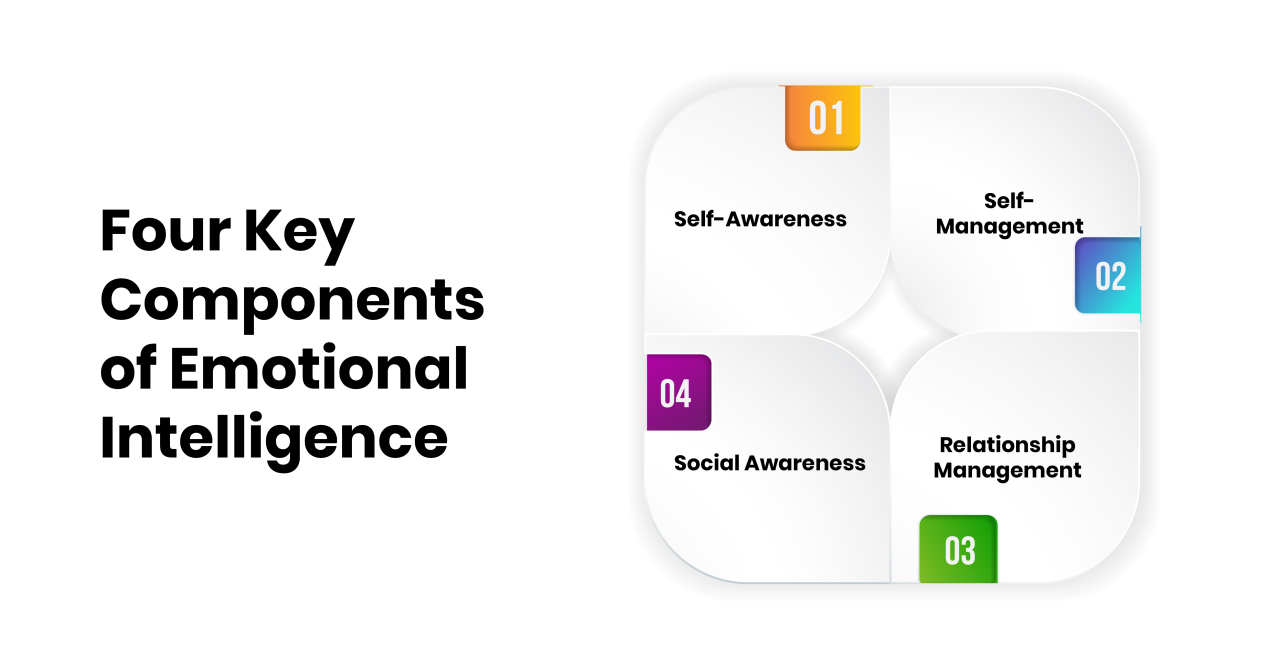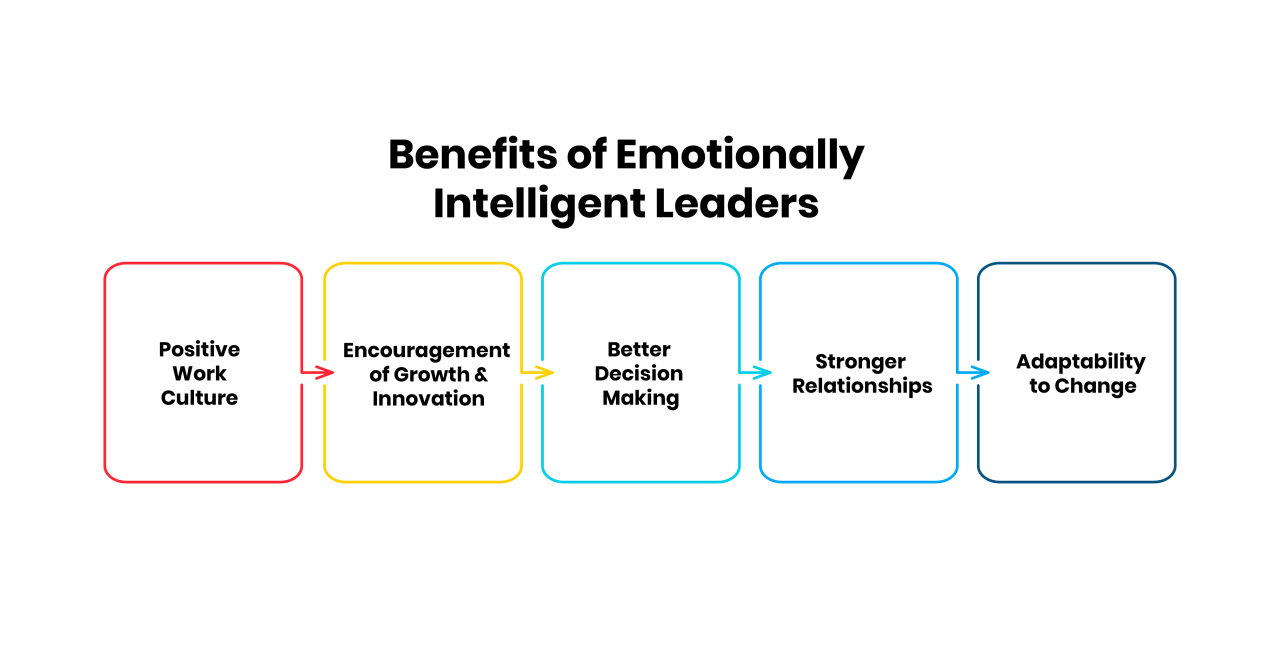Leaders play a pivotal role in shaping the culture and success of any organization. While technical skills and IQ are important qualifications for a leader, research shows that Emotional intelligence (EI) is the defining factor for effective leadership.
Leaders with higher Emotional intelligence are able to build stronger relationships, make better decisions under pressure, and create an engaged workforce that performs beyond expectations. This article discusses the importance of Emotional intelligence for leadership efficiency and how developing key Emotional intelligence competencies can help individuals become better leaders.
Emotional intelligence refers to the ability to recognize and manage one's own emotions, read and influence other people's emotions, and use the information to guide thinking and actions. Self-aware leaders understand their strengths, weaknesses, drives, and values. They display high self-management through self control and adaptability. They are socially aware by understanding other people's perspectives and empathizing with them. They manage relationships effectively by inspiring, influencing, and developing others.
Research shows that Emotional intelligence has a significant positive impact on leadership effectiveness across different industries and cultures. A meta-analysis of 20 studies involving nearly 4000 leaders found a strong correlation between higher Emotional intelligence and better leadership outcomes.
Leaders with higher Emotional intelligence scores were rated by subordinates and peers to be more effective in guiding business units to desired performance levels. They were also better at creating an environment of trust, managing change, and developing future leaders within their organizations.
A good example of how Emotional intelligence contributes to leadership success is former New Zealand cricket captain Brendon McCullum. His biographical accounts reveal someone with exceptional self-awareness - he understood his strengths of fearlessness and motivating others but also recognized areas for improvement like patience and emotional control.
As captain, his social awareness allowed him to empower teammates and get the best out of different individuals. His inspiring communication style and relationship building helped change the losing culture into a winning one. Many former teammates credit his Emotional intelligence skills for the Black Caps' rise to prominence during his leadership tenure.
There are four key components of emotional intelligence crucial for leadership:

Effective leaders possess a deep understanding of their own emotions, strengths, and weaknesses. They are cognizant of how their feelings may influence themselves and others in various situations. Leaders with strong leadership qualities do not let their personal prejudices or biases cloud their judgment. They have a realistic perspective of their own abilities and are comfortable acknowledging gaps in their skills or knowledge.
Through reflection, these leaders continuously work to improve themselves both professionally and personally. They actively seek feedback from others to gain additional insights into how they are perceived and how to enhance their leadership abilities. Maintaining self-awareness allows leaders to make well-reasoned decisions even under pressure by regulating impulses and controlling emotional reactions.
Leaders managing themselves effectively are in command of their feelings and behaviors. During tense times, they do not allow anger, frustration, or other emotions to dictate their responses or actions. These leaders remain objective, focusing on logical problem-solving rather than fiery reactions. They exhibit patience, resilience, and optimism even when confronted with setbacks or opposition.
With a strong sense of self-management, leaders do not burn out from stress and can motivate their teams during turbulent periods. Their composure and calm demeanor provide reassurance during uncertainty and lead by positive example. Through difficult situations, self-managed leaders demonstrate stability, inspiring confidence from those they lead.
Socially aware leaders possess profound sensitivity to complex social relationships and group dynamics within an organization. They understand both formal and informal power structures as well as the perspectives, needs, and interests of various individuals. With such awareness, leaders can effectively mediate conflicts, build cohesive teams, and develop important partnerships. Their ability to comprehend the intricate political climate enables them to navigate challenging situations and unite diverse constituents.
By recognizing different motivations, priorities, and means of communication across the organization, socially adept leaders promote inclusion while driving progress. Their insight into the interpersonal landscape fosters cohesiveness and performance throughout the group.
Top leaders possess exceptional talent for inspiring, developing, and connecting with others. With strong relationship management skills, they communicate clearly and tactfully persuade people through influence rather than direct authority. These leaders recognize each person's different work styles and needs in order to help individuals reach their maximum potential and contribute to shared goals. Their interpersonal expertise extends to harmoniously resolving disagreements and managing change initiatives.
Valuing individuals enables them to establish meaningful relationships built on mutual understanding and trust. Such cohesive connections between leaders and team members yield high engagement, productivity, and organizational success.
By being attuned to these emotional intelligence competencies, leaders can forge stronger bonds, gain buy-in for visions more easily, and foster environments where people are motivated to perform at their best.
Some benefits that organizations reap from emotionally intelligent leaders include:

Emotionally intelligent leaders are able to understand and influence the emotions of those around them. They recognize that establishing a supportive environment where people feel respected and cared for is important for boosting engagement and productivity.
By acknowledging the humanity of each employee, emotionally intelligent leaders foster trust and build psychologically safe spaces where people can openly contribute without fear of negative consequences. This type of supportive culture empowers employees to freely share ideas and work collaboratively to successfully deliver results for the organization.
Leaders with strong emotional intelligence recognize that valuing the diversity of thoughts and giving autonomy over work is important for nurturing conditions where innovation can flourish. They acknowledge both efforts and accomplishments, keeping employees feeling motivated in their roles.
With the support of emotionally intelligent leaders who are receptive to new ideas, people will be more willing to take calculated risks and think creatively about how to work can be approached differently. This leads to continual learning and improvements at both the individual and organizational levels.
Understanding both logic and emotions enables emotionally intelligent leaders to make choices that progress goals in a strategic way while also maintaining the buy-in of key stakeholders. They recognize the importance of comprehending how decisions will land emotionally with different groups in order to facilitate cooperation and minimize unforeseen challenges during implementation.
Bringing various perspectives into the decision process leads to well-reasoned outcomes that address the human elements of change alongside the business elements.
Emotionally intelligent leaders demonstrate empathic concern for the people around them, from direct reports up through upper management. They recognize that sincerely caring about others' wellbeing and success inspires dedication from employees who feel genuinely appreciated and supported. This cultivation of genuine human connections based on understanding feelings strengthens cooperation across all levels. People are motivated to invest greater effort in leaders who recognize the importance of fostering rapport and collaboration.
Since emotionally intelligent leaders have the ability to effectively manage their own emotions and interpret the emotions of others as they undergo transition; they can smoothly facilitate organizational change.
By addressing concerns, people have about changing processes or ways of working, emotionally intelligent leaders reduce barriers to adopting new initiatives. Their comprehension of how transformation improves morale allows them to maintain productivity and motivation as the organization evolves to meet evolving demands. Their deft management of both task requirements and human elements eases organizations through necessary periods of change.
While functional skills remain requisite, contemporary research indicates emotional skills may be the defining abilities for any leader aiming to take their team to greater heights. The meta-analysis unanimously confirms emotional intelligence has a significant impact on how effective leaders are perceived and the success they achieve. By prioritizing the development of self and social competencies, individuals can enhance their leadership potential, and organizations can identify candidates most likely to thrive in top management roles.
This website uses cookies to enhance website functionalities and improve your online experience. By browsing this website, you agree to the use of cookies as outlined in our privacy policy .